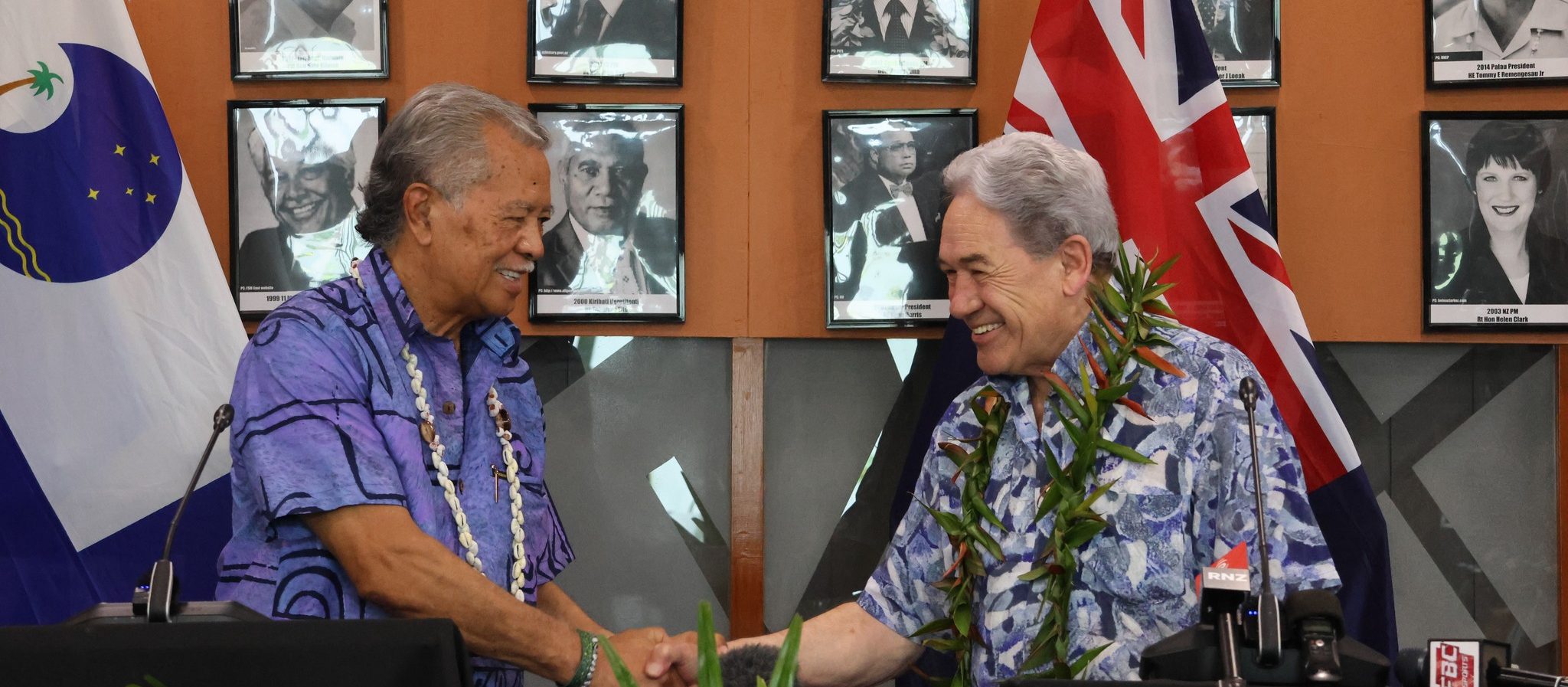“I don’t want to live in the past and I’m sure the leaders don’t want to live in the past. We’ve moved on from that and we want to move forward,” said outgoing Secretary General of the Pacific Islands Forum (PIF), Henry Puna, during a press conference with visiting New Zealand Deputy Prime Minister, Winston Peters, in Suva at the weekend.
Puna made the statement in response to questions over the ‘walkout’ that occurred at the recent PIF Leaders’ meeting in the Cook Islands.
“Our leaders agreed in Rarotonga, despite the walkout by Nauru, that regional unity is absolutely important because of the 2050 Strategy and its implementation plan. Otherwise, we can’t move forward on those plans and visions,” he said.
Puna also admitted that some leaders had concerns with the appointment process of the incoming Secretary General, Baron Waqa, former Nauru President from 2013-2019. Waqa will take over the leadership role at PIF in June 2024.
“I’m pleased to say that our leaders dealt with that issue during their retreat in Aitutaki. And there is now a commitment to follow the process into the future. So, it’s no longer an issue now,” Puna clarified.
He welcomed Peters at the PIF Secretariat in Suva, saying: “As a founding member of the PIF, New Zealand continues to play an instrumental role in granting Pacific priorities within and beyond the oceanic borders.”
“At a time when our region is facing immense pressure from global interest, our Forum must continue to stand together,” Puna added.
Peters and his delegation were in Fiji as part of New Zealand’s first bilateral visit since the election of the National-led Coalition.
Asked if New Zealand will be making a pledge to the Pacific Resilience Facility, “We’ve got to have a mini budget, which will be out in four days’ time. And there has to be a big picture budget going into May next year,” Peters told Islands Business.
Peters also met with Fiji Prime Minister, Sitiveni Rabuka, to “further strengthen relations through the ongoing collaboration under the Duavata Partnership,” a government statement said. “The Duavata partnership encapsulates common goals in climate change, economic resilience, and regional security and solidarity,” it said.
The two leaders also discussed prospects for visa free arrangements and greater opportunities through the Recognised Seasonal Employers (RSE) Scheme.
